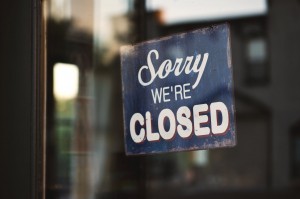The hospitality and leisure sectors across the West of England urgently need more targeted help from the government to avoid devastating closures and job losses, experts today warned.
With the sectors employing 40,000 people and contributing £40m to region’s economy, their survival is essential.
Yet many commercial landlords are failing to accept their bar and café tenants cannot pay rent while they remain closed and the government has not addressed the specific needs of the sectors, the annual Bristol Balloon Fiesta Business Breakfast was told this morning.
The event, hosted by law firm Thrings in partnership with Business West – and held online this year with the theme of Let’s Get This Region Flying – heard from a panel of speakers on measures being taken to help West of England businesses as they emerge from the pandemic.
A snap poll taken among the virtual audience at the beginning of the event showed that 70% were ready to get the region ‘flying’ again while 15% feared there was still a long way to go, with the remaining 15% unsure.
The upbeat mood was reflected by the panel discussion, with the region’s reputation for innovation expected to help it bounce back.
However, they warned that a second wave of the coronavirus this winter – coupled with the fallout from Brexit – could be devastating for parts of the city’s economy already reeling from the impact of the lockdown.
Marti Burgess, pictured, who chairs night-time economy lobby group Bristol@night and also co-owns the city’s iconic Lakota nightclub, warned that some venues would not re-open this year as they could not bring in social distancing while most others were operating at 40% capacity to meet the regulations.
She said the average cost to a venue of putting in social distancing safety measures and buying personal protective equipment for staff was £30,000. Yet many, particularly those in the city centre, were struggling during week.
While she welcomed the government’s support, it had not helped everyone. “There are a lot of freelancers working in events, for example, and they’ve fallen through the cracks,” she said.
“Some venues are owned by sole traders, which means they’re not eligible for the schemes. They won’t survive unless there is another government intervention or the Arts Council fund is widened to include them.
“A second wave would be devastating and industry research shows that 60% or 70% of clubs will be forced to close for good as they can’t put in social distancing.
“Without more help a whole industry will go to the wall.”
Griff Holland, pictured, founder and owner of Bristol-based Friska café chain, described the government’s furlough scheme as “an absolute lifeline”. Some 120 Friska staff across its 12 outlets have been paid by the scheme since lockdown started. Just one of them has reopened so far.
The firm has launched an ‘at-home’ service, which was popular with people working from home in the early days of lockdown, he said. More recently it has attracted corporate customers as staff start returning to work.
Friska’s business model since it opened its first café 10 years ago was to target sites close to busy office developments, he said. “It was look around to see the number of people in business dress and look up at the glass buildings where they worked. Now people are only going into the office possibly once or twice a week.”
Workplace culture was changing – but people still wanted to go to the office to be with their colleagues. “Yahoo told all their people they could work from wherever they liked. After 18 months they said it was wasn’t working,” said Griff.
Cafes and bars in the suburbs were doing well as people were not travelling into city centres as often as before the pandemic. Yet the big issue was that the owners of these city centre properties were not being helpful, he said.
“We need a lot more support from landlords. At the moment there’s not a lot of love from them. I understand they are businesses too, but the fundamentals have changed. There has to be more flexibility on rents and there needs to be some intervention by the government.
“If you’re closed, how the hell can you pay rent?”
Also on the panel was Margot Day, global director for risk and commercial at Bath-based consulting engineers Buro Happold and a member of Local Enterprise Partnership board and the West of England recovery task force.
She outlined measures now being taken to support firms and individuals in the region and ensure that the recovery was the right kind – one based on sustainable growth with embedded green objectives, improved transport and digital services and targeted help for those hit hardest.
The debate was chaired by TV and radio presenter Steve LeFevre.





















